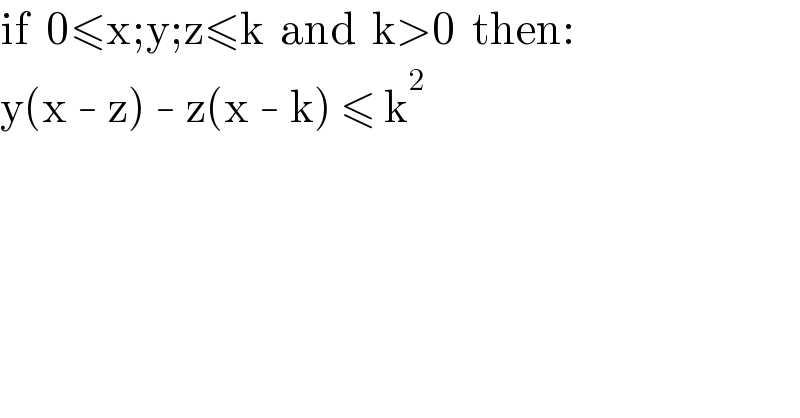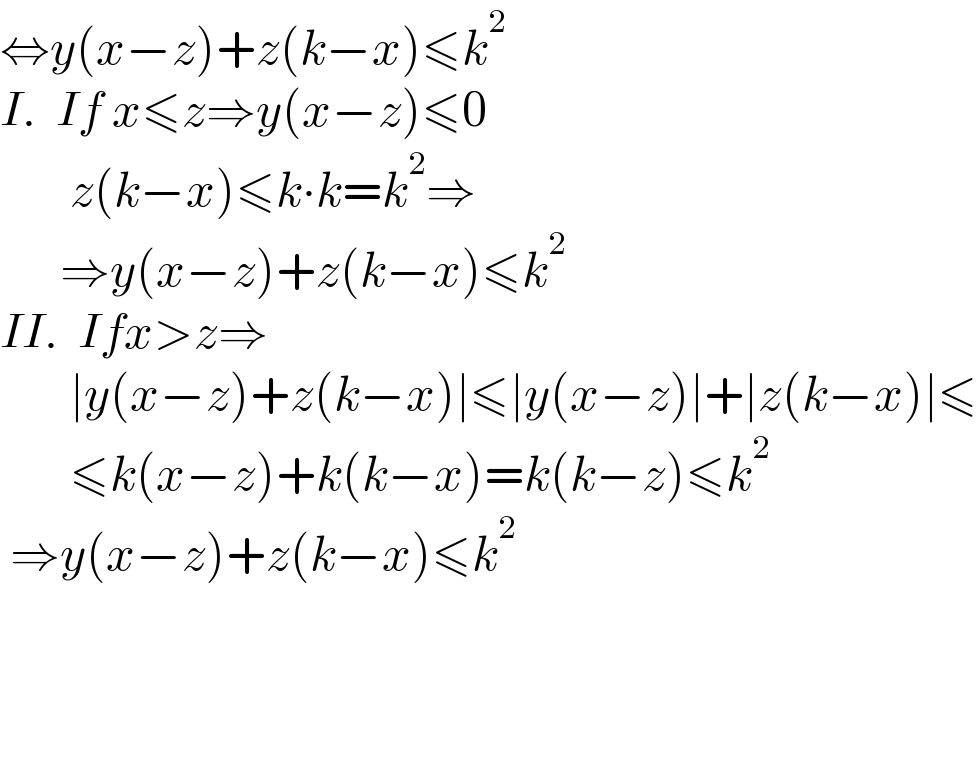
Question and Answers Forum
Question Number 151100 by mathdanisur last updated on 18/Aug/21

Answered by dumitrel last updated on 18/Aug/21

Commented bymathdanisur last updated on 18/Aug/21

| ||
Question and Answers Forum | ||
Question Number 151100 by mathdanisur last updated on 18/Aug/21 | ||
 | ||
Answered by dumitrel last updated on 18/Aug/21 | ||
 | ||
| ||
Commented bymathdanisur last updated on 18/Aug/21 | ||
 | ||